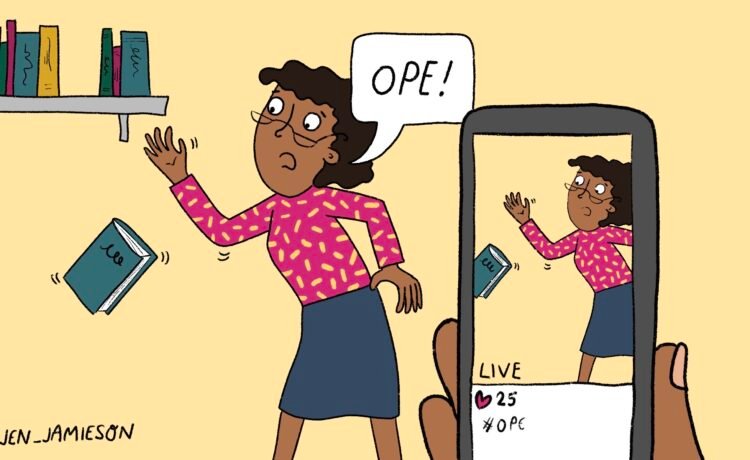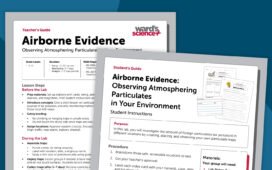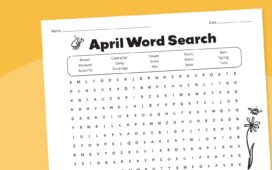
Dear We Are Teachers,
Recently, a friend sent me a video going viral on TikTok. A student had been recording me throughout the year and created a series of clips highlighting my Midwestern accent. It’s innocent enough and I’m not offended by the content (I do have a strong accent!), but I do feel uncomfortable that these recordings happened in class without my knowledge or permission. When I brought it up to my principal, I got a lukewarm response. Should I push back? What are my rights here?
—Not for Netflix
Dear N.F.N.,
You’re absolutely right to feel uncomfortable. Even if the student didn’t mean harm, being recorded without your knowledge or consent crosses a boundary. And while this instance might seem benign (Midwestern accents are charming), the next one might not be.
Laws vary by state, but many states have two-party consent rules, meaning both parties must agree to be recorded. Even in one-party consent states, schools often have policies against students filming staff without permission—especially if the footage ends up online.
Also, your principal’s lukewarm response is not great, but unfortunately, it’s not uncommon. To me, this is less about the content of the video or the student’s actions and more about what could be a liability for your school in the future. Here’s what I recommend:
- Loop in your union (if applicable). They can help you navigate your rights and even communicate with your admin if needed.
- Document everything. Save the video and screenshots, and record the date you first noticed it and brought it to your admin’s attention.
- Check your district’s policy. Look into student device use, social media conduct, and privacy guidelines. This gives you firmer ground if you want to escalate.
- Push (respectfully) for a response. Frame it as a safety and precedent-setting issue. If students feel empowered to film teachers without consequences, that opens the door to more problematic content down the line. (Raise your hand if you lived through the “Devious Licks” TikTok trend of 2021.)
You have every right to set boundaries around your privacy in your classroom. And you shouldn’t have to worry about your hallway “Ope!” or “You betcha!” making it to the For You page.
Dear We Are Teachers,
I’m a seasoned teacher with over a decade in the classroom, and I recently decided to explore new opportunities. I’ve been applying for roles in different districts and even a few instructional coach positions. The problem? I freeze in interviews whenever I get a curveball question.
I can talk all day about my teaching philosophy, classroom management strategies, and how I build relationships with students. But the moment I get asked something unexpected—like how I’d handle a colleague undermining me in a PLC, or how I’d improve a curriculum I haven’t even seen—I feel my brain short-circuit. Suddenly I’m rambling or, worse, giving a vague, forgettable answer.
I know interviews aren’t pop quizzes, but that’s how they feel. How do I stay grounded and articulate when a question throws me off my game?
—All A’s Except in Interviewing
Dear A.A.E.I.I.,
Boy howdy, do I feel seen.
You’re not alone. So many of us stumble when the interview shifts from “Tell me about your classroom” to “Pretend you’re a curriculum director at a school you’ve never seen.” Once during an interview, I was put in a room of arts-and-crafts materials and asked to make a game about my teaching philosophy. (Even as a big arts-and-crafts fan, I wanted to throw up.)
First, give yourself some grace. Interviews are weird. They don’t always showcase the strengths that make you great at your actual job. But here are some strategies to help you stay grounded when you get thrown a curveball:
- Practice curveballs. Ask a trusted friend or colleague to toss you weird interview questions. The goal isn’t to have perfect answers—it’s to get comfortable thinking on your feet.
- Use AI. Our list of ways AI can help you nail an interview includes hacks for generating interview questions and practicing an interview with a robot(!).
- Don’t fear the “I don’t know.” If you’re asked to solve a problem with missing variables (like revising an unfamiliar curriculum), it’s OK to say: “I’d want to gather more data first, but here’s how I’d begin that process.”
You’re clearly a reflective, experienced educator. With a little practice reframing how you respond to the unexpected, you’ll be as confident in interviews as you are in your classroom.
Dear We Are Teachers,
It’s almost August, and I’m staring down the same to-do list I made in May.
Narrator: She didn’t do any of it.
I had such noble intentions to organize and get ahead. But instead of checking things off, I’ve been checking out. I read some books (none professional), binged four shows I can’t even recommend in polite company, and got very invested in reorganizing my spice rack by color, which was never even on the list.
Now, with the school year looming, I feel a mix of guilt and panic. Should I try to cram productivity into this last week? Or is it OK that I let myself rest?
—Rested but Regretful
Dear R.B.R.,
Can I just say your summer sounds kind of perfect?
That list you made in May? That was aspirational. You thought June You was going to be a productivity machine. But Late July You didn’t account for the fact that May You was running on fumes, thereby affecting her logic. OK, abandoning the month pronouns now. That’s confusing.
Let’s reframe this:
You read books. You allowed your brain to rest. And your spice rack is now a color-coded masterpiece.
That doesn’t sound like failure. That sounds like recovery.
If you’re feeling the itch to do something, pick one small thing that would make your first week back smoother (like prepping your syllabus or writing a parent letter). But don’t try to cram a summer’s worth of to-dos into the final days of summer break. We don’t sprint our way to peace of mind.
Do you have a burning question? Email us at askweareteachers@weareteachers.com.
Dear We Are Teachers,
I get that incentives can motivate students, but I’m so over the endless candy rewards system. It feels like every time I turn around, there’s another bag of sweets being handed out for the smallest thing. Not only is it unhealthy, but I’m worried it’s teaching kids to expect treats for basic behavior instead of developing genuine self-discipline. Plus, I’m the only teacher trying to offer non-food rewards, and honestly, it’s exhausting and feels like swimming upstream. How do I push back on the candy culture without sounding like the fun police?
—Fed Up With Sweet Deals








Recent Comments